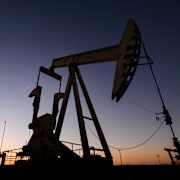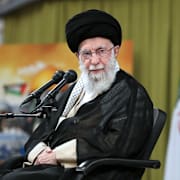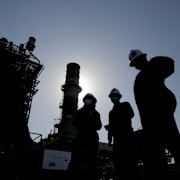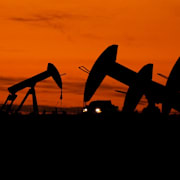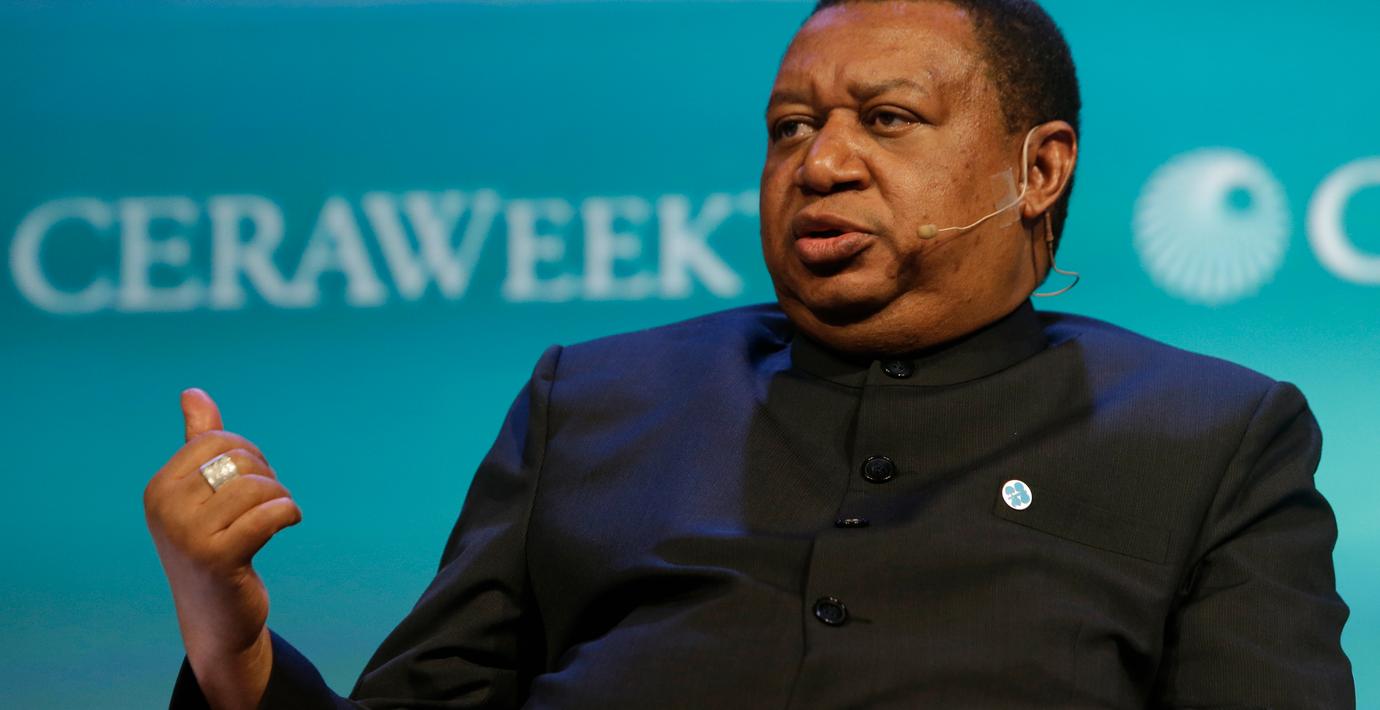
Opec-chefen: Alla måste hjälpa till med oljepriset
Inte bara länderna i oljekartellen Opec, utan alla världens oljeproducenter bör hjälpas åt för att hitta balans på oljemarknaden. Det säger Opecs generalsekreterare Mohammad Barkindo under en presskonferens i Istanbul.
– Det här är för stort för någon grupp av intressenter. Det här måste vara alla producenters ansvar, sa han.
bakgrund
Opec
Wikipedia (en)
Organization of the Petroleum Exporting Countries (OPEC, OH-pek, or OPEP in several other languages) is an intergovernmental organization of 14 nations as of May 2017, founded in 1960 in Baghdad by the first five members (Iran, Iraq, Kuwait, Saudi Arabia, Venezuela), and headquartered since 1965 in Vienna. As of 2016, the 14 countries accounted for an estimated 44 percent of global oil production and 73 percent of the world's "proven" oil reserves, giving OPEC a major influence on global oil prices that were previously determined by American-dominated multinational oil companies.
OPEC's stated mission is "to coordinate and unify the petroleum policies of its member countries and ensure the stabilization of oil markets, in order to secure an efficient, economic and regular supply of petroleum to consumers, a steady income to producers, and a fair return on capital for those investing in the petroleum industry." The organization is also a significant provider of information about the international oil market. As of May 2017, OPEC's members are Algeria, Angola, Ecuador, Equatorial Guinea, Gabon, Iran, Iraq, Kuwait, Libya, Nigeria, Qatar, Saudi Arabia (the de facto leader), United Arab Emirates, and Venezuela, while Indonesia is a former member. Two-thirds of OPEC's oil production and reserves are in its six Middle Eastern countries that surround the oil-rich Persian Gulf.
The formation of OPEC marked a turning point toward national sovereignty over natural resources, and OPEC decisions have come to play a prominent role in the global oil market and international relations. The effect can be particularly strong when wars or civil disorders lead to extended interruptions in supply. In the 1970s, restrictions in oil production led to a dramatic rise in oil prices and OPEC's revenue and wealth, with long-lasting and far-reaching consequences for the global economy. In the 1980s, OPEC started setting production targets for its member nations; and generally when the production targets are reduced, oil prices increase, most recently from the organization's 2008 and 2016 decisions to trim oversupply.
Economists often cite OPEC as a textbook example of a cartel that cooperates to reduce market competition, but whose consultations are protected by the doctrine of sovereign immunity under international law. In December 2014, "OPEC and the oil men" ranked as #3 on Lloyd's list of "the top 100 most influential people in the shipping industry". However, their influence on international trade is periodically challenged by the expansion of non-OPEC energy sources, and by the recurring temptation for individual OPEC countries to exceed production ceilings and pursue conflicting self-interests.
Omni är politiskt obundna och oberoende. Vi strävar efter att ge fler perspektiv på nyheterna. Har du frågor eller synpunkter kring vår rapportering? Kontakta redaktionen
